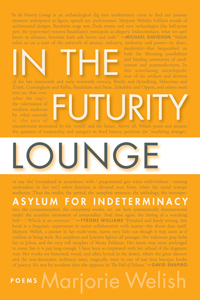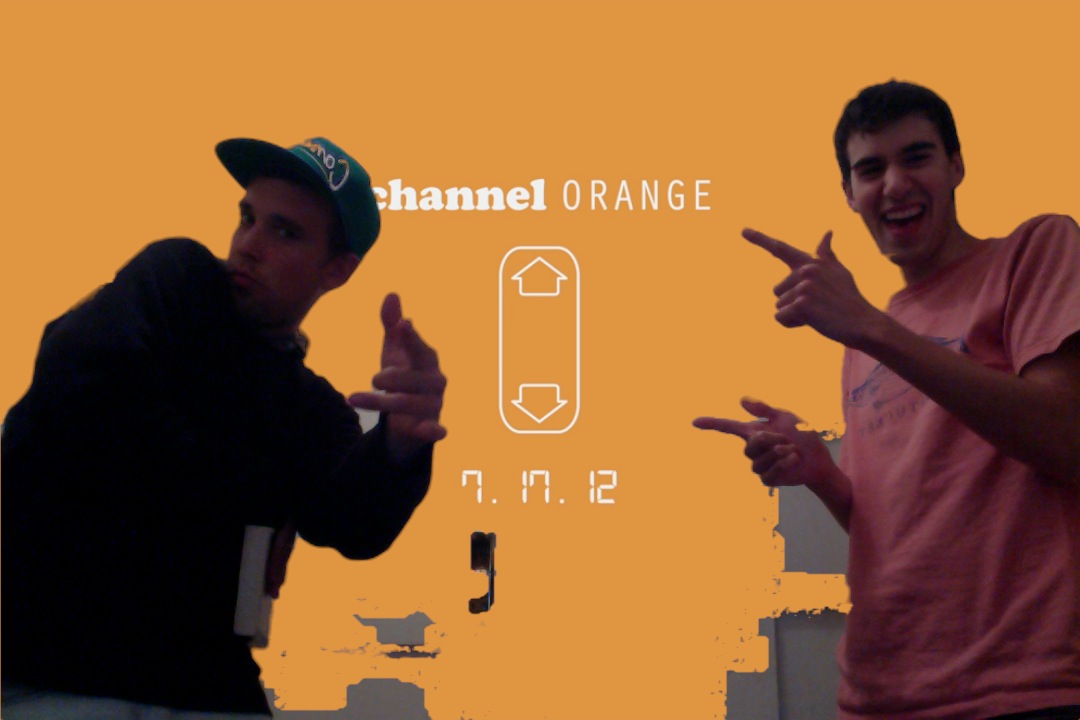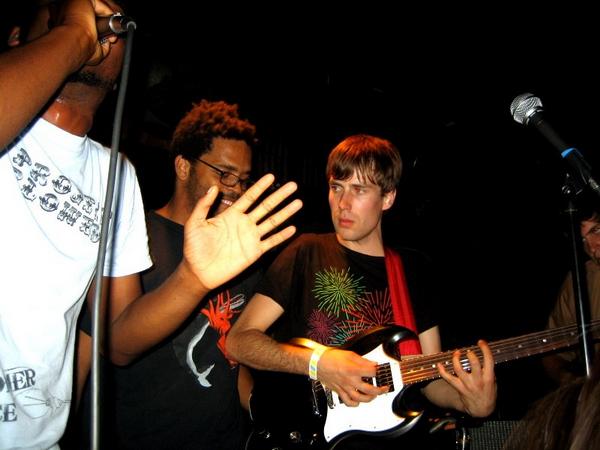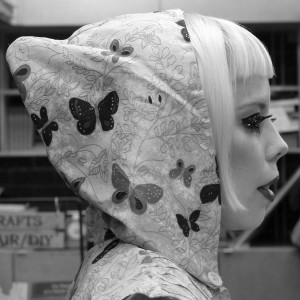Another way to generate text #6: “word splitting”
“Split the stick and there is Jesus.” —John Cage
This is a simple technique and I will demonstrate it with this very sentence. First you take some language and split its words up. Then you write through it:
Th is i s a sim ple techn ique an d I w ill demon stra tei twi th thi s ver y sen tence
One of my favorite websites is OneLook, a dictionary search engine with wildcard functionality. Using it, I “completed” the split-up fragments:
Joshua Cohen’s Four New Messages
More info here. The book is good, very very good. Buy it.
Britney Crying

On Thursday May 18, 2006, Britney Spears, then 24 years old with 8-month-old son Sean Preston Federline, was photographed in a restaurant between the Ritz Carlton and New York-Presbyterian Hospital, crying. Perhaps it was Postpartum, or the Paparazzi, or just the onset of life formerly dodged by her pigtail’d statutory look. The resolution is grainy, captured by an unfair stranger who made a lot of money that day. The “extra” glimmer in her eye — not of the cornea, but a welled tear — may be described by a solid square pixel, void of knowing what it was portraying, the incandescent camera’s flash hitting a bulbous mound of saline. The celebrity photo, taken in one moment forever gone, much like painting, prospers by its sole uniqueness as it nails itself into some history of who we are, what we want. Britney may be a gross American, but she may also be our first sacrificial lamb. (One imagines likely contemporaries Avril Lavigne, Lada Gaga, and Ke$ha as being less sad, perhaps more complicit.) A virgin with stretch marks is obviously not a virgin anymore. As for the girl with the pearl earring, her own glimmers painted in by a dead man, she lives somewhere in a dank gallery inside The Hague, a quick train from where kids with new passports go to get high.
Rich Uncle by Terese Svoboda
Manhattan between the wars was not made dull by death or dread: it sang. The pink-lipped living strode past the fresh monuments mounted over the new mica-glitter sidewalks, exclaiming over the stars at their feet and around the park, trolley conductors competed in bellringing as they took and mistook actual stars from far off California. Although liners could be heard moaning clear across town, exiting and entering with abandon, ironshod hooves no longer rang, only the occasional garrulous fruit vendor sang from his horse, making its last rounds, or a carriage-driver cursed at his plumed nag dodging motorcars, the last harnessed for the park pleasures of rubes or Frenchies–so much noise was made on the street that the pink-lipped living shrieked their gossip as they walked in twos and threes over the glittering sidewalks.
An odd couple shrieked down the street in tandem, not quite together, not quite incognito, one of them a deb. New York debs were covered by the press just like Grable, cited in columns and flashbulbed beyond blindness. With assets considerably less physical than fiscal, Dot had been debuted but not suitored. She directed the two of them south along the mica, south to where one could get a seat, more specifically, a seat on the stock market. A woman with a seat would be new. Toothpaste was new, most all of what stacked up beside a pharmacist’s till was new. Father, owner of all the sugar in the world, would know what a stake in clean teeth was worth and that she could handle such a transaction, and handle it best with a seat.
Today a company selling women’s items, Dot said, napkins they called them as if you would have them at table, was about to make a public offering of stock, and Father thought she might handle the delicacies. She had handled them, and then Father. Bid it up, she told him at lunch. Women aren’t having children anymore. A coathanger company could produce piles of profit too. (more…)
Marjorie Welish: In the Futurity Lounge / Asylum for Indeterminacy
 In the Futurity Lounge / Asylum for Indeterminacy
In the Futurity Lounge / Asylum for Indeterminacy
by Marjorie Welish
Coffee House Press, April 2012
112 pages / $16 Buy from Coffee House or Amazon
It says a lot about Marjorie Welish’s new collection of poetry that the cover design of the book consists of well-known writers hard at work both explicating the book and extolling its virtues. The book doesn’t really need that kind of push in terms of quality (line by line, the writing is great throughout) but explaining what Welish’s project consists of is more of a problem. Reading the book, when you try to corral the abundance of subjects addressed in the book into a good read and interesting network of ideas, you’re often interrupted by uninvitingly plastic stretches that may test your patience not because they don’t add up but because Welish’s “not adding up” isn’t an interesting and compelling kind of resistance.
Subjects and abstractions that recur and are addressed from different perspectives across the span of the book include but are not limited to: architecture, modernism, the language of public space, language as a faulty reproductive device, proscriptive language, performance, mechanical technology, outmoded technology, Brecht, Beckett, Stein, Shakespeare, Baudelaire, translation, the pragmatics of the visual art world, and Dada. These aren’t just jumbled together, however, so much as continually revisited in widely varied forms. And with the press materials in hand, there’s even more: the book is actually two books, the first being a “laboratory of modern futurity” and the second “a zone of research” responding to choice terms from translations of Baudelaire’s “Correspondences.” It’s not hard to imagine, then, how the book could labor under the weight of so much content even as the poems themselves are compelling moment by moment.
What more effectively ties the individual poems together is the very creatively employed use of repetition and rearrangement. The poems often proceed not via an attempt to directly address or explain any of the more abstract ideas mentioned above but to perform them and move sideways through varied repetitions and a reliance on all caps and homophones. One of the more concrete examples of this appears in “Signal to Noise,” which begins like this:
Bathe her and anoint her in oils, permit her to feast. Then interview her.
Then interview her
Ask her name and from whence she came. Then how she came to this pass.
This is a test.
This is a test.
END.
and quickly transforms into complex expansion:
Then interview her.
SENDER is to issue a few central questions in advance to structure the interview to allow
the SUBJECT a chance to think—I do not believe in provoking the stranger to tilt some
sort of misguided spontaneity in flight! HELPER may indeed issue three or four
questions also and ours, kindred may overlay. Infer her. Test test test test coincidence
of number emitted in collapse.
You’re not arriving at an increased understanding of the nature of either “SUBJECT” or questions but rather you’re shown an increasingly baroque set of variations that address the natures of an interview and a test as well as a play on words that spreads from interview her to infer her and (tacitly) interfere. This is how much of the book does the heavy lifting of addressing such a wide cast of content—by variations that illuminate the importance of minor linguistic differences and by playing around with those differences.
This play, and an attendant “subject” or place or thing, are what gives you mooring in the midst of all the complex abstraction, knowingly referenced in lines like these:
More specifics
legible, capable of being read charismatically, if unintelligibly writ
or written intelligently lenient despite indistnctness or obscurity
since reversed: inverted involved upside down scrambled sampled and
put through a sieve crushed with the blade of a knife cubed
and quartered split off from plaintext
The problem is that “plaintext” gets left completely unmoored for much of the book, which is compelling line by line but doesn’t accrue into any kind of broader perspective on any of the subjects named above or connections between them. That’s the main, and really only, problem of the book: the noise of abstraction is beautiful, but after dozens of dense pages it starts to seem repetitive and feel dull. This is not to say that the book itself is dull, but that the sheer tonnage of poetry crammed in a small font into 97 pages eventually makes the work of playing along much less appealing to do unless you’re an adept at the wide range of references Welish employs (from Frank Lloyd Wright to WWI to a Bob Perelman poem) or else read strictly for surface play rather than any kind of larger architecture.
No single line or poem is flat-footed here, but it’s the weight of unplacable reference and dodge into abstraction that makes the book tough as a straight-through read. Instead the book invites visiting it here and there, piece by piece, reading enough to see the intelligence and wit at work but not so much that the poems’ frequent indeterminacy begins to frustrate or bore. As the book title even suggests, In The Futurity Lounge is less a place to stay than to visit and hang out for a while before moving on, interested in visiting again.
***
Nicholas Grider is an artist and writer whose artwork was recently the subject of a solo show at the Armory Center for the Arts in Los Angeles and whose writing has recently been published in Conjunctions, Drunken Boat and other journals.
July 13th, 2012 / 12:00 pm
Frank Ocean Channel Orange Listening Party
 Music by Frank Ocean. Commentary by David Fishkind, Adam Humphreys, Erik Stinson. Food by Trader Joes and Bob and Betty’s.
Music by Frank Ocean. Commentary by David Fishkind, Adam Humphreys, Erik Stinson. Food by Trader Joes and Bob and Betty’s.
Landscape Featuring Oklahoma: A Conversation with Letitia Trent

 Editor’s Note: Okla Elliott is the author of From the Crooked Timber, a collection of short fiction. Letitia Trent is the author of One Perfect Bird, a collection of poetry. They corresponded by email.
Editor’s Note: Okla Elliott is the author of From the Crooked Timber, a collection of short fiction. Letitia Trent is the author of One Perfect Bird, a collection of poetry. They corresponded by email.
Okla Elliott:You’ve recently gotten into Martha Wainwright, and I know that music is a pretty serious interest of yours. How has music influenced your poetry? What have you taken from your favorite songs into the best poems you’ve written?
Letitia Trent: I do not come from a big music family: they mostly listen to radio country music. I listened to pop and rock radio constantly as a kid, from ages seven to eleven (I listened to the entirety of Kasey’s Top 40every Saturday, for example, so my knowledge of late 80’s, early 90’s pop music is alarming), and later was one of those teenagers who was obsessive about finding new bands and discovering the webs of musical connections between musicians and genres of music. I read lyrics and liner notes carefully and read every music review I could find, even if it was for music I didn’t know. If I had any musical ability, I probably would be a singer-songwriter.
So, early on, music was a way to connect to the outside world of people who created things. It was more accessible than books and poetry, which were pretty rare for me, as I grew up in a house without many books READ MORE >
In Conversation: Kate Durbin and Kate Zambreno @ Her Kind
Channel the Howl:
A Conversation with Kate Durbin and Kate Zambreno




